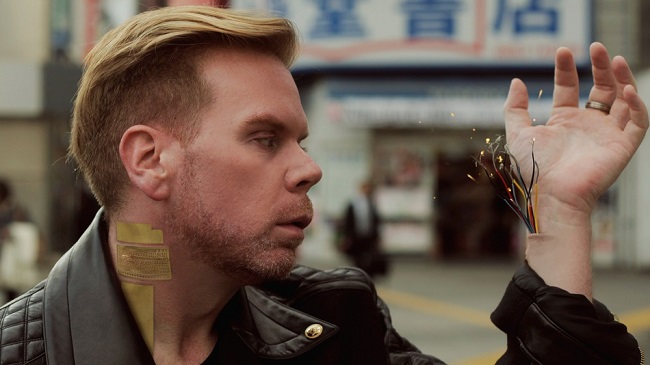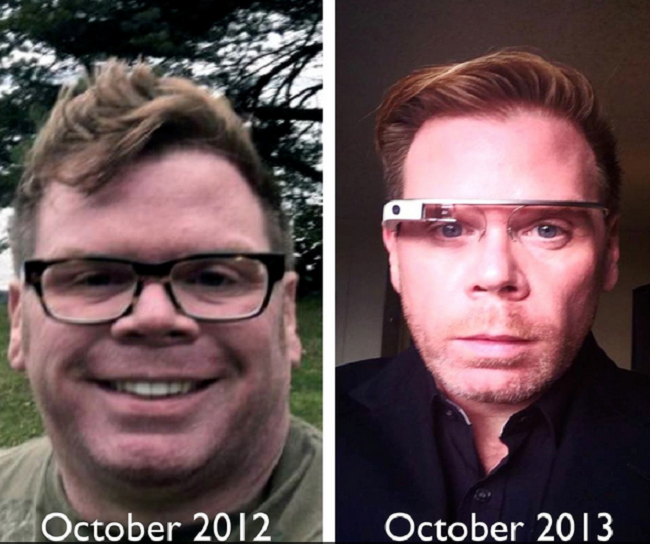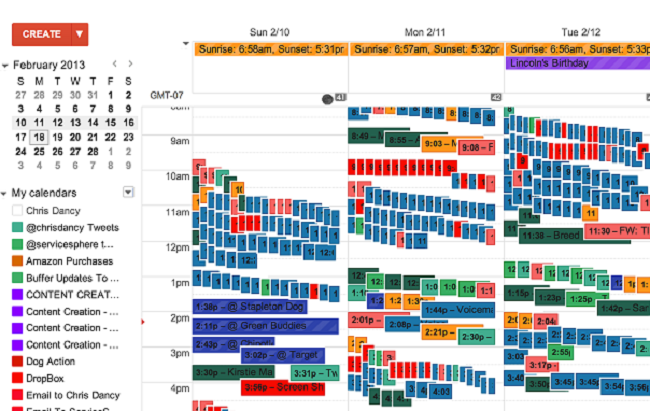
Employee performance tracking is nothing new: Tesco in England equips employees with armbands to tracks how fast they move merchandise in a warehouse, assigning points depending on the completion time. Call centers use track employee conversation lengths, DARPA wants to track soldier health, and the Salesforce CEO boasts about tracking the time employees spend on internal social network. Chris Dancy, a director at BMC Software’s technology department, thinks that if everyone else is tracking you, you owe it to yourself, to track yourself too. And Dancy’s not half-kidding, he’s got anywhere between 300 and 700 gadgets capturing real-time data about his life.
On a daily basis, Chris is connected to a minimum of three sensors, and sometimes as many as five. He uses these to measure his pulse, REM sleep, skin temperature, and more. Chris wears Google Glass everywhere he goes; there’s also a Fitbit and Pebble on his wrists. There are even sensors smothering his house: a Beddit mattress cover sits on his bed to track his sleeping patterns, bathrooms sensors to track, well, those habits, and Wi-Fi Aria scale to log his daily weight, to name but a few.
This may seem excessive to most people, bordering on obsessive compulsive or a mid-life crisis, but the vast amount of information Chris regularly gathers has helped him stay healthy and even lose 100 lbs. The technocrat claims the reason for jumping neck deep into a seemingly magnified version of the “quantified-self” movement, folks enthusiastic about self-tracking tools, is because the poor record keeping on the part of his medical provider.

“If I’m on a call and my voice gets over 50 decibels, my phone notifies me,” he says. “My heart rate after a conference call usually can give me better insight into the call and my feelings about the call.”
Chris is convinced that it’s only a matter of time before the rest of the world catches up to his lifestyle. “There are mountains of data in everything we use at home, even when it's not 'smart,’” he says, “By the end of the decade, there will not be a job on earth that hasn't been changed by smart objects, wearable computing or personal information.”
When Chris lost his job in IT four years ago, he observed the reliance on IT diminishing with the rise of cheaply available technology. Employees are becoming more apt to access projects using their own technology and thus take control out of the hands of a company’s IT department. IT is changing and employees who are still supporting legacy systems rather than adapting are becoming expendable. Couple this factor with the rise of employee tracking, and it becomes easy to miss the performance of less visible employees.

A look into Chris Darcy’s Google Calendar reveals sortable, organized Chaos.
As a result, Chris decided he needs to track everything he’s doing, not just in his biological life, but in digital life as well. He can easily provide an exact snapshot into his daily activities because he screenshots every webpage he visits, every tweet he makes, every e-mail he writes, absolutely everything, and saves this data in Evernote, Google Calendar, and Excel. This helps him to closely monitor his digital presence, and tailor his “extended online persona” to support his offline self. Something Chris believes is extremely important given the proliferation of sites such as Linkedin and Klout, which openly quantify your connections/influence, forcing perception of your Internet-reputation outside of your control.
Inevitably one must wonder if Chris Darcy ever takes an offline vacation? Yes, he claims he does, but with so much information being gathered from anything he does, most of it automatically, it becomes difficult to truly disconnect. Whether this is a good thing or bad thing is up to the individual person, and the willpower to avoid “checking-up” on this data.
Via Wired
Advertisement
Learn more about Electronic Products Magazine





